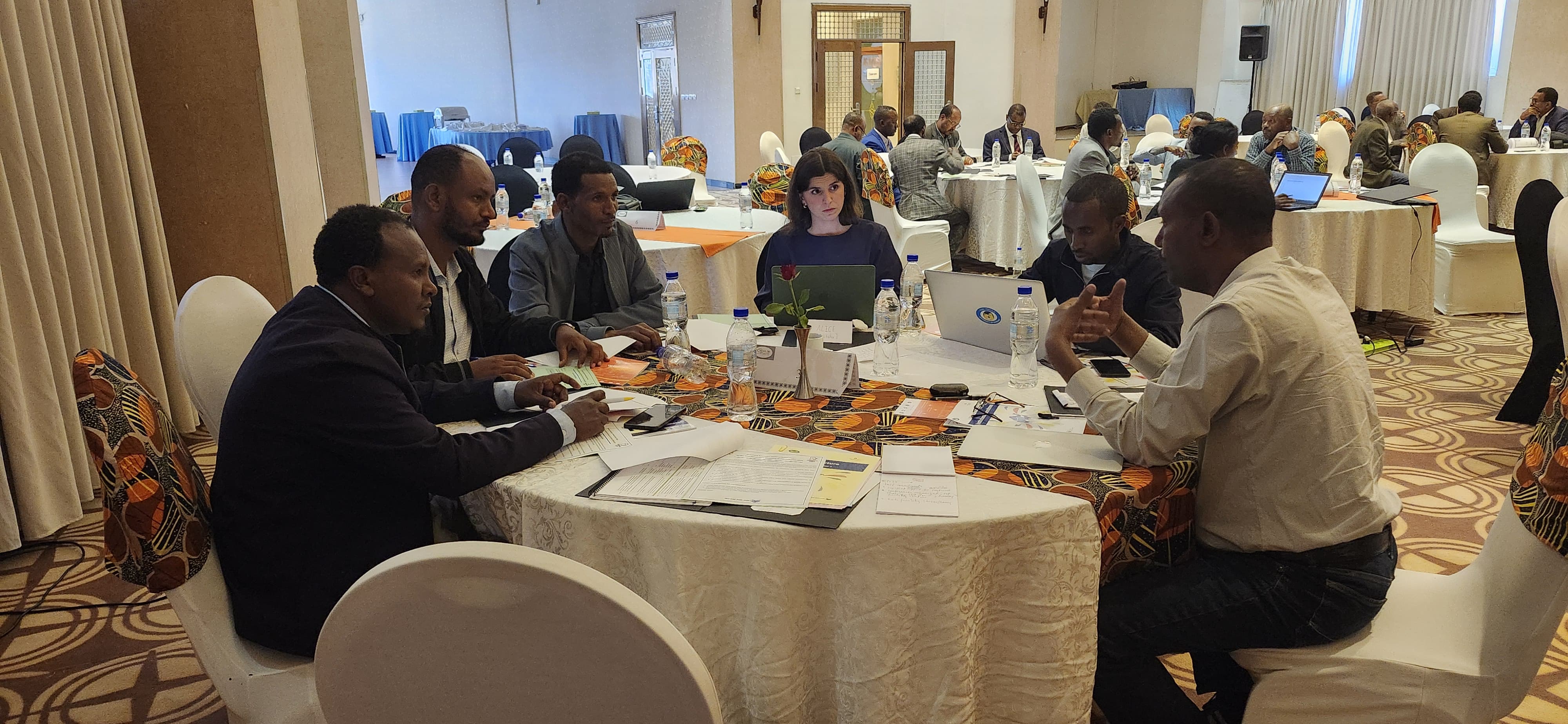Veterinary public health residents at Ohio State are finding new opportunities to engage in global health work through an ambitious initiative to improve veterinary education in Ethiopia - one that could help shape the future of food systems and public health in the region.
On May 9, leaders from across Ethiopia’s veterinary sector came together in Addis Ababa to launch the country’s Veterinary Education National Action Plan (VEd-NAP), a framework designed to support the implementation of the 2020 harmonized veterinary curriculum, meeting both the country's needs and global recommendations. The event was co-organized by the University of Gondar College of Veterinary Medicine and Animal Sciences and the Ohio State College of Veterinary Medicine. Led by Ohio State faculty Armando Hoet and Amanda Berrian, the VEd-NAP launch is the latest milestone in a broader effort to strengthen veterinary services and support One Health goals across the region. These efforts support and align with WOAH’s recommended competencies, which define the core skills new veterinary graduates should possess to meet national and international demands.
The plan builds on Ethiopia’s 2020 Nationally Harmonized Veterinary Curriculum and is aimed at enhancing the quality and consistency of veterinary training across all 18 institutions in the country that offer Doctor of Veterinary Medicine (DVM) degrees. The process of curricular revision was highly participatory and collaborative, following a robust and validated methodology, with multiple public and private stakeholders throughout Ethiopia, including 17 deans and six university presidents.
Alice Matos and Jim Ferrara, veterinary public health residents at Ohio State, have been deeply involved in the development of the VEd-NAP since 2024, gaining valuable experience in addressing challenges at the intersection of animal health, food safety and international development. This hands-on work helps prepare future professionals to contribute meaningfully to global health and education initiatives. “Before getting involved in this project in Ethiopia, I had little understanding of the work that goes into building a strong veterinary education program and how important that work truly is. Now, I realize how essential these efforts are for strengthening veterinary services and ultimately improving global health,” said Matos.
Ohio State students participating in these initiatives have the chance to engage in everything from policy development and curriculum design to on-the-ground training and research. The work offers not just technical experience, but also insight into the cultural and systemic factors that shape public health outcomes around the world.
Ferrara emphasized the importance of genuine collaboration in global health development. "Speaking with the deans and presidents of the various Ethiopian veterinary education establishments helped me start to understand how small conversations can lead to big impacts," he said. "In veterinary capacity building and public health, preparing thorough and fruitful communication pathways is the key to establishing partnerships at the local and national levels. Participating as a facilitator at this national event was unique for me, as I have mostly done research as an observer abroad - I learned to really listen and engage with the diverse group of stakeholders while also helping to guide the discussion towards meaningful country-specific solutions.”
To learn more about how Ohio State students are contributing to global veterinary public health, visit the College of Veterinary Medicine.
